Invest Energy
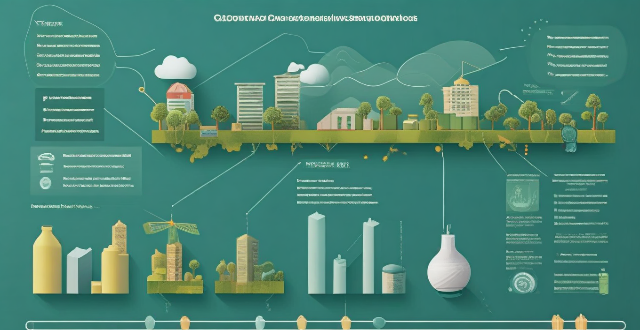
How can individuals invest in clean energy projects ?
Investing in clean energy projects is a way to support sustainable development and fight climate change. Individuals can invest through renewable energy mutual funds, green bonds, direct investment in clean energy companies, community solar projects, and sustainable real estate investments. Examples include iShares Global Clean Energy ETF (ICLN), Toyota Green Bond, and Eco-friendly apartment complexes.

What is the best cryptocurrency to invest in ?
The article provides a summary of the best cryptocurrencies to invest in, including Bitcoin (BTC), Ethereum (ETH), Binance Coin (BNB), and Cardano (ADA). It highlights the pros and cons of each cryptocurrency, such as high liquidity and widespread adoption for Bitcoin, smart contract functionality and a large developer community for Ethereum, usefulness on the Binance exchange and a burn mechanism for Binance Coin, and a strong academic foundation and focus on security and sustainability for Cardano. The conclusion emphasizes the importance of considering factors such as liquidity, adoption, and potential for growth when choosing a cryptocurrency to invest in, and encourages readers to do their own research before making an investment decision.

What government incentives are available for individuals or businesses looking to invest in renewable energy technologies ?
Governments worldwide offer incentives for renewable energy investments, including tax credits, grants, feed-in tariffs, net metering, and green bonds, to promote clean energy adoption and reduce reliance on fossil fuels.
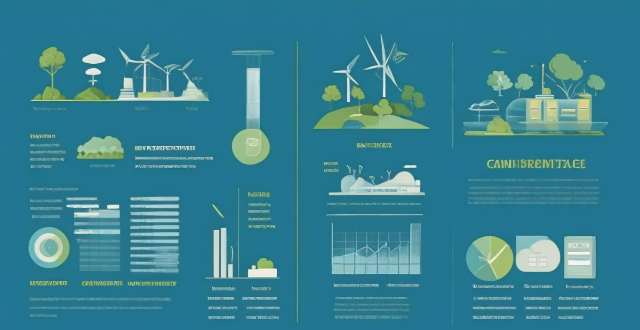
How do I invest in wind energy projects ?
Investing in wind energy projects can be a lucrative opportunity, but requires careful consideration and planning. To ensure success, it is crucial to understand the industry, research potential projects, evaluate their feasibility and financial viability, conduct due diligence, choose a suitable investment strategy, secure financing, form partnerships, negotiate terms, monitor progress, and diversify your portfolio. By following these steps, you can make informed investment decisions and contribute to a sustainable future for generations to come.

What is the best way to invest in gold ?
This article explores the best way to invest in gold, discussing why one might want to consider adding gold to their portfolio and outlining different ways to invest in gold, such as physical gold, gold stocks and mutual funds, gold ETFs, and gold futures and options. The advantages and disadvantages of each method are discussed, and it is emphasized that the best way to invest in gold depends on individual investment goals, risk tolerance, and personal preferences.
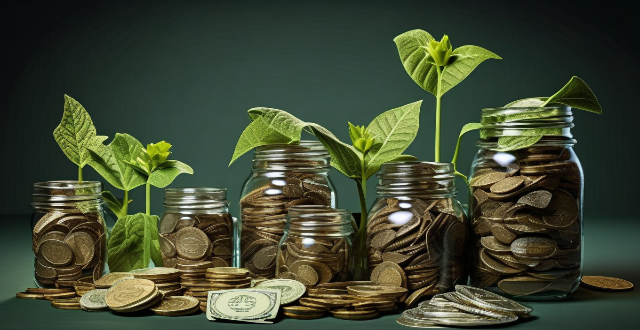
How much money should I invest in cryptocurrencies ?
Investing in cryptocurrencies has become a popular trend, but determining how much money to invest can be challenging. Factors such as risk tolerance, investment goals, market conditions, and the need for diversification should be considered before making any investment decisions. It is important to carefully consider these factors and only invest what you are comfortable losing, as investing in cryptocurrencies carries risks.

How do I invest my money wisely for long-term growth ?
Investing wisely for long-term growth involves setting financial goals, creating a diversified portfolio, considering risk tolerance, investing for the long-term, and monitoring investments regularly.

How can I invest in stocks with a minimal risk ?
How to Invest in Stocks with Minimal Risk Investing in stocks can be risky, but there are strategies to minimize these risks. Diversification across stocks, sectors, and asset classes is crucial. Dollar-cost averaging helps smooth market fluctuations. Stop-loss orders limit potential losses. Long-term investing allows for market recoveries. Understanding the companies you invest in reduces unknown risks. Start small and learn as you go, staying informed about financial news. Working with a financial advisor can provide personalized guidance. Remember, no investment is completely risk-free, so assess your comfort level before making decisions.

How do I invest in the stock market ?
The text provides a step-by-step guide on how to invest in the stock market. It emphasizes the importance of education, determining investment goals, choosing a strategy, opening a brokerage account, selecting investments, monitoring them, and maintaining patience and discipline. The process involves learning about different types of stocks, understanding risks, diversification, and risk management. It also includes researching brokerage firms, funding an account, choosing individual stocks or mutual funds based on company performance, and staying informed about market changes. Overall, the text encourages potential investors to approach stock market investing with careful planning and research to achieve their financial goals over time.
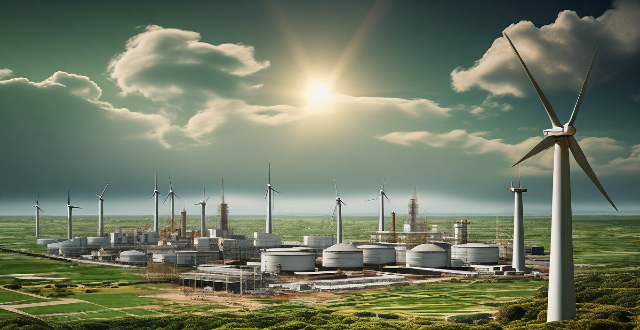
What are the risks associated with investing in clean energy ?
Investing in clean energy is beneficial for the environment and potentially profitable in the long term, but it comes with its own set of risks. Some of the key risks associated with investing in clean energy include technology risk, market risk, operational risk, regulatory risk, financial risk, environmental risk, and social and political risk. It's essential to be aware of these risks and manage them effectively to ensure successful investments in this sector.

Is it safe to invest in cryptocurrency as a financial product ?
Is it safe to invest in cryptocurrency as a financial product? The answer is not straightforward, as there are both risks and potential benefits associated with this type of investment. On the one hand, cryptocurrencies are known for their high volatility, lack of regulation, and security risks, which can make them a risky investment. On the other hand, investing in cryptocurrency can potentially yield high returns, offer decentralization, and be accessible to investors. Ultimately, it is important to carefully consider the risks involved before making any investment decisions and to only invest what you are willing to lose. As with any investment, it is recommended to do your own research and consult with a financial advisor before making any decisions regarding cryptocurrency investments.

Can I invest in financial products with a small amount of money ?
Investing in financial products with a small amount of money is possible and can be beneficial for long-term wealth growth. Minimum investment requirements vary among different financial products, but options like robo-advisors, micro-investing apps, online brokerages, ETFs, and direct stock purchases allow for low minimum investments. Starting small helps manage risk, build discipline, and take advantage of compound interest. Tips for investing small include setting clear goals, educating oneself, diversifying the portfolio, considering fees and taxes, and staying patient and disciplined.

What policies are necessary to encourage the adoption of energy storage solutions ?
Energy storage solutions are becoming increasingly important in the modern world. They provide a way to store excess energy generated by renewable sources, such as solar or wind power, for use at a later time. This can help to balance the grid and ensure a stable supply of electricity....

Is it better to save or invest money for wealth growth purposes ?
The age-old debate of whether to save or invest money for wealth growth purposes largely depends on individual circumstances, risk tolerance, and financial goals. Saving offers security and stability but low returns, while investing carries more risk but has the potential for higher rewards. The best approach for most individuals is a balance between saving and investing, with strategies such as establishing an emergency fund, allocating for short-term goals, investing for long-term goals, and regularly re-evaluating financial plans.

How do energy conservation and emission reduction policies impact the economy ?
Energy conservation and emission reduction policies have both positive and negative impacts on the economy. Positively, they create new jobs, promote innovation, improve public health, and enhance energy security. Negatively, they can increase operating costs for businesses, lead to job losses, slow down economic growth, and entail significant adjustment costs. It is crucial for policymakers to carefully consider these factors when designing and implementing sustainability initiatives.
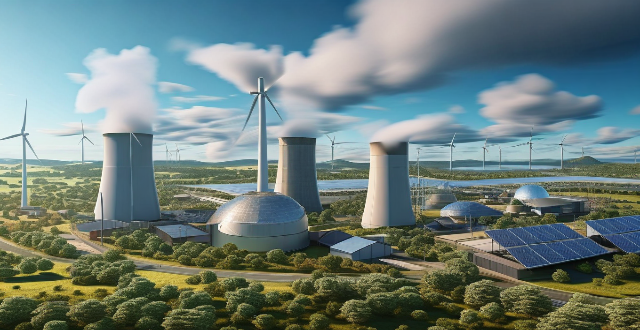
What role do renewable energy sources play in distributed energy systems ?
Renewable energy sources are crucial for distributed energy systems due to their clean, sustainable nature and local generation capabilities. They reduce carbon emissions, enhance energy security, promote local economic development, improve energy efficiency, and enable innovation in these systems.

What are the current trends in renewable energy policies globally ?
The global community is increasingly prioritizing renewable energy policies as part of efforts to combat climate change and reduce carbon emissions. Governments are offering financial incentives, setting ambitious targets for renewable energy consumption, promoting energy efficiency, and encouraging private sector investment in clean energy projects. These trends reflect a worldwide commitment to creating a more sustainable future through the adoption of renewable energy sources.

How can carbon credits be used to incentivize renewable energy adoption ?
Carbon credits can incentivize renewable energy adoption by creating a market, providing financial support, encouraging sustainable practices, and raising awareness about climate change.

How does energy transition contribute to combating climate change ?
The text discusses the importance of energy transition in combating climate change. It outlines how this transition contributes to reducing carbon emissions, increasing energy efficiency, promoting sustainable practices, stimulating innovation and economic growth, integrating smart grids and energy storage, and enhancing international cooperation. The shift from fossil fuels to renewable energy sources is crucial for mitigating global warming by directly addressing greenhouse gas emissions.

How can existing buildings be retrofitted for energy efficiency ?
Retrofitting existing buildings for energy efficiency involves several strategies, including conducting an energy audit, upgrading insulation, installing energy-efficient windows and lighting systems, optimizing HVAC systems, using energy-efficient appliances, implementing water-saving measures, sealing air leaks, investing in renewable energy sources, and encouraging energy-conscious behavior. These steps can lead to cost savings, increased comfort, and reduced environmental impact.

How do I invest in tech stocks as a beginner ?
Investing in tech stocks can be a profitable venture, but it's important to approach it with caution and knowledge. Here are some steps to help you get started: 1. Educate yourself on the basics of the stock market and the technology sector. 2. Set investment goals based on your risk tolerance and desired returns. 3. Choose a reputable brokerage firm that offers access to the stock market. 4. Research individual tech stocks by looking at financial statements, earnings reports, and news articles. 5. Diversify your portfolio by investing in multiple tech stocks across different industries and companies. 6. Monitor your investments and stay informed about industry developments and company news. 7. Remember that investing in stocks involves risks, including the possibility of losing money. Do your own research and consult with a financial advisor before making any investment decisions.

How do energy-efficient buildings affect a company's bottom line ?
Energy-efficient buildings positively impact a company's profitability by reducing energy costs, enhancing employee productivity, and improving environmental performance. These benefits include lower utility bills from reduced energy consumption, increased revenue from healthier and more productive employees, and improved corporate image that attracts talent and eco-conscious customers. Despite higher initial investment, the long-term advantages make such expenditures beneficial for sustainable business growth.

How do renewable energy policies influence innovation and technology development ?
Renewable energy policies are crucial for driving innovation and technology development in the clean energy sector. These policies provide incentives for research, investment, and deployment, creating a favorable environment for technological advancements and innovation. Government support and funding, regulatory frameworks, market incentives, and collaboration and partnerships are all essential factors that influence innovation and technology development in this sector. By providing financial assistance, setting standards and requirements, creating demand for clean energy solutions, and fostering collaboration between different stakeholders, renewable energy policies help to accelerate the development of new technologies and improve existing ones. As we continue to face challenges related to climate change and energy security, it is essential that we continue to invest in renewable energy solutions and support policies that encourage innovation and progress in this field.
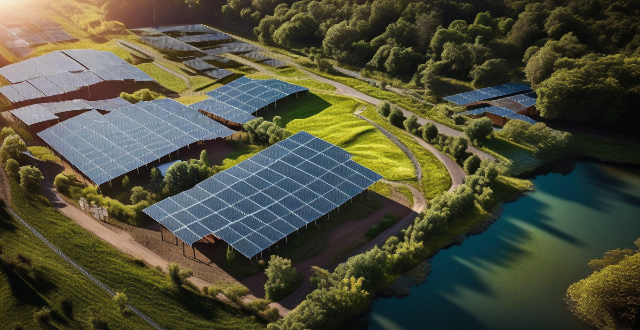
How does solar energy work ?
Solar energy is generated through the use of solar panels containing photovoltaic cells, which convert sunlight into electricity via the photovoltaic effect. This process involves absorbing sunlight, exciting electrons to a higher energy level, generating an electrical current, collecting it, and converting it into usable AC electricity. Solar energy is renewable, sustainable, cost-effective, and environmentally friendly, but its effectiveness can be reduced by weather conditions, and it requires additional equipment for energy storage. Despite high upfront costs, solar energy systems can lead to long-term savings on utility bills.

What are some effective strategies for promoting energy conservation and emission reduction ?
Energy conservation and emission reduction are crucial for sustainable development and addressing climate change. Effective strategies include education and awareness, government policies and regulations, financial incentives and subsidies, technological innovation, infrastructure and urban planning, and individual actions. By implementing these strategies, we can work towards a future where energy is used efficiently, emissions are reduced, and our planet is protected for generations to come.

What role do governments play in promoting clean energy investment ?
Governments play a crucial role in promoting clean energy investment by implementing policies and regulations that encourage the development and adoption of renewable energy sources. These efforts are essential for reducing greenhouse gas emissions, mitigating climate change, and achieving sustainable economic growth. This article will discuss some of the key ways governments can promote clean energy investment. Governments can set ambitious renewable energy targets to drive the transition towards a low-carbon economy. By establishing specific goals for renewable energy generation, governments create a clear direction for the industry and provide certainty for investors. For example, governments can set national targets for the share of renewable energy in total energy consumption or electricity generation, or mandate that a certain percentage of electricity must come from renewable sources, encouraging utilities to invest in clean energy projects. Governments can offer financial incentives to attract private sector investment in clean energy projects. These incentives can include feed-in tariffs, tax credits and exemptions, grants, and low-interest loans. Investment in research and development (R&D) is crucial for advancing clean energy technologies and driving down costs. Governments can support R&D through public funding, collaborative partnerships, and innovation grants. Complex regulatory processes can be a barrier to clean energy investment. Governments can streamline these processes by simplifying permitting and providing clear guidelines. Investing in infrastructure and supportive systems is essential for the widespread adoption of clean energy. Governments can contribute by developing energy storage solutions, upgrading transmission networks, and supporting smart grid development. Public awareness and consumer demand are critical factors in driving clean energy investment. Governments can influence these factors by launching public awareness campaigns and offering consumer incentives such as rebates or tax credits for installing renewable energy systems in homes or businesses. In conclusion, governments have a multifaceted role in promoting clean energy investment. By setting targets, providing financial incentives, supporting R&D, streamlining regulations, building infrastructure, and educating the public, governments can create an environment conducive to the growth of the renewable energy sector. These efforts are essential for transitioning to a sustainable, low-carbon future and addressing the urgent challenge of climate change.

How can climate finance be leveraged to support renewable energy projects ?
Climate finance plays a crucial role in supporting renewable energy projects. Here are some ways to leverage it: 1. Public-Private Partnerships (PPPs) can be used to attract private investment into renewable energy projects. 2. Green Bonds can be issued to fund environmentally friendly projects such as solar and wind farms. 3. Carbon Pricing Mechanisms can generate revenue that can be invested in renewable energy projects. 4. International Climate Finance Initiatives can provide funding for renewable energy projects in developing countries. 5. Crowdfunding Platforms offer another way to raise funds for renewable energy projects. By using a combination of these strategies, we can accelerate the transition towards a more sustainable future.

How can businesses adopt sustainable energy practices to reduce their carbon footprint ?
Businesses can adopt sustainable energy practices to reduce their carbon footprint by switching to renewable energy sources, improving energy efficiency, implementing energy management systems, promoting green commuting, using environmentally friendly materials and processes, and educating stakeholders. These strategies not only benefit the environment but also enhance a company's reputation and can lead to cost savings in the long run.

What are the costs associated with implementing a distributed energy system ?
This article discusses the different types of costs associated with implementing a distributed energy system, including initial investment costs, operational costs, and energy costs. It also emphasizes the importance of carefully considering these costs before making any decisions about whether or not to invest in such a system.
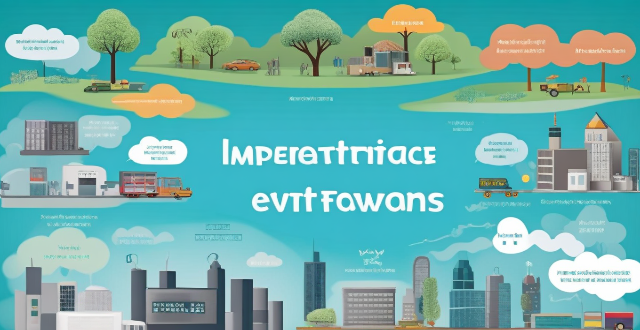
What is the role of international cooperation in shaping renewable energy policies ?
The text discusses the importance of international cooperation in developing renewable energy policies worldwide. It highlights three main benefits: sharing knowledge and best practices, accessing financing and investment opportunities, and addressing global challenges such as climate change, air pollution, and energy security. Examples are provided for each benefit, including technical workshops, research collaborations, policy forums, multilateral development bank loans, green bonds, private sector partnerships, climate change agreements, joint research efforts, and energy security initiatives. The conclusion emphasizes that international cooperation is crucial for accelerating the transition to a more sustainable and equitable energy system.